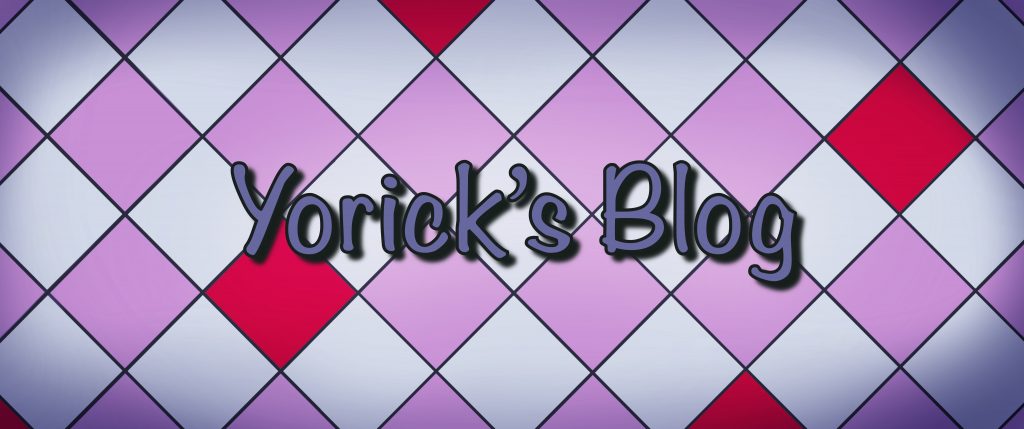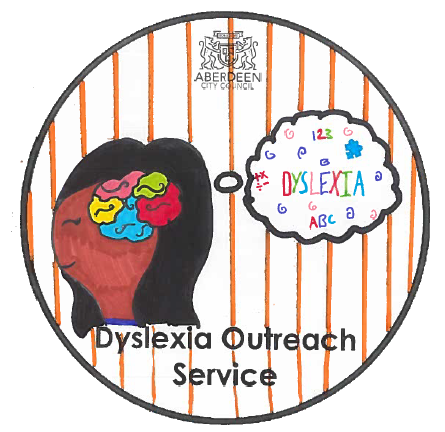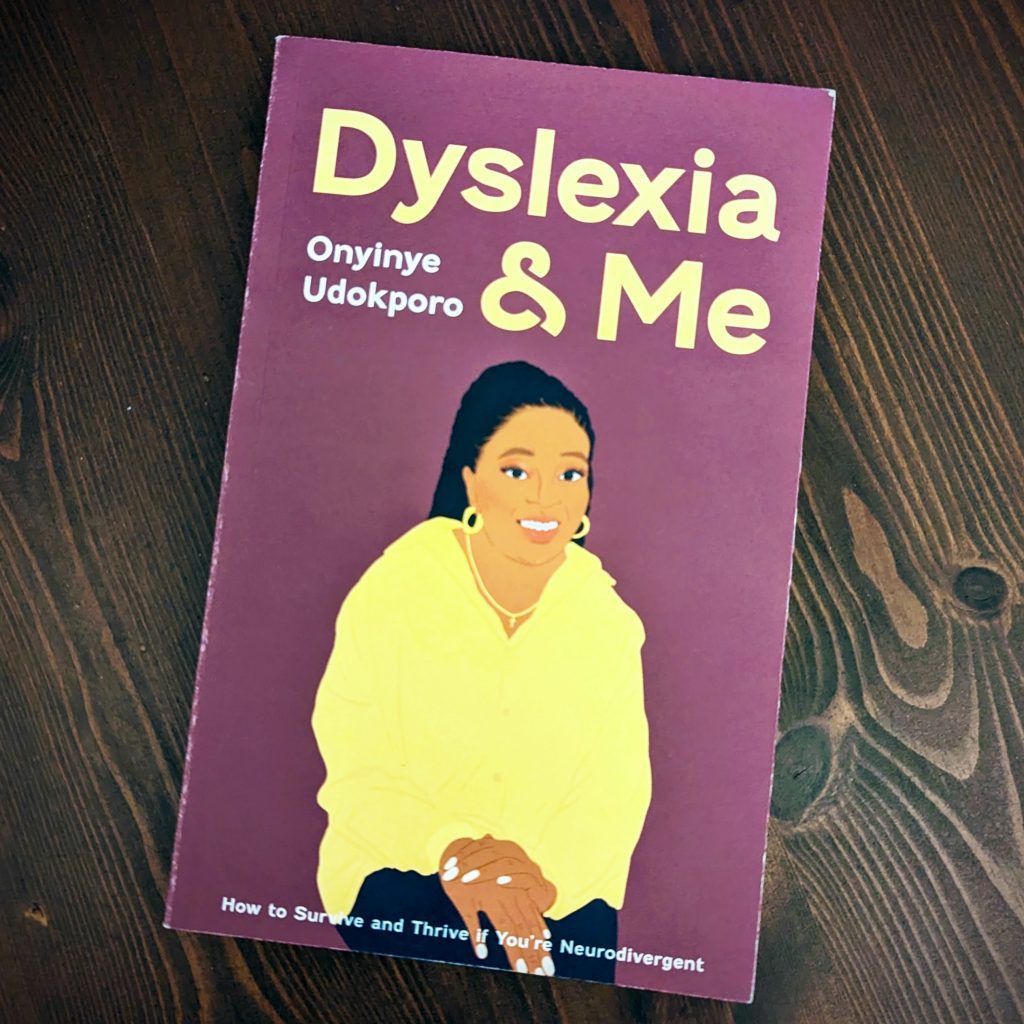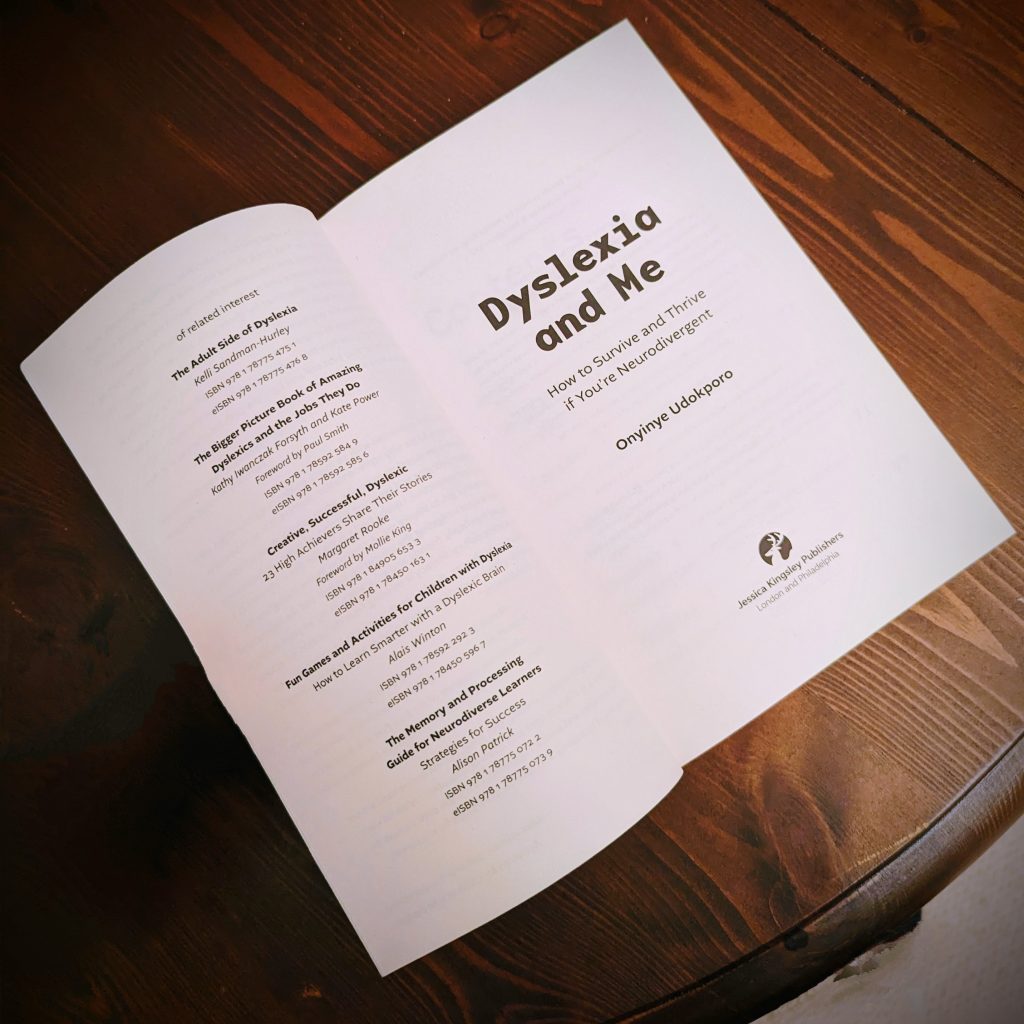
Sweet are the Uses of Adversity
The way the human brain works is fascinating. No two are exactly alike. Each person thinks differently and sees the world in different ways. We all have our skills and we all have our struggles.
Though the Yorick Team loves stories, some of our members actually have literacy difficulties, and find reading a challenge. That was one of the things that inspired our podcast in the first place; particularly Rosie’s love of listening to epic adventures (especially Tolkien). Podcasts and audiobooks are a great way to absorb stories if reading is a challenge. Some people find it tiring and uncomfortable. Some people find it difficult to decode the words, while others find that tracking a sentence from one word to the next and reading in a straight line is hard. But listening is easy. You can move or do other things while you listen, you can alter the speed and volume to suit your brain, and you can share it with others at the same time. Sometimes – regardless of whether or not you like reading – it’s just easier and more enjoyable to listen along. Especially in today’s busy, always-on-the-go lifestyle, where finding the time to sit down and focus, to become completely immersed, can be an even greater challenge.
This month’s blog post comes from our Admin Magician who, by day, is a Support for Learning teacher in a primary school. They work with lots of children who need extra time and focus to work on things they find challenging. This past year, they’ve been lucky enough to work with Dyslexia Outreach and learn more about dyslexia as a neurodiversity, how it affects people, and some of the ways to make reading and writing more accessible, and more importantly, fun for dyslexic thinkers.

First of all, a quiz! (And don’t cheat by scrolling to the bottom.)
What percentage of people is dyslexia thought to affect?
A) 10-20% B) 5-7%
Dyslexia can be cured.
A) True B) False
People with dyslexia have low IQs.
A) True B) False
Dyslexia is a difficulty in understanding and working with language.
A) True B) False
Dyslexia affects boys and girls equally.
A) True B) False
Dyslexia is something you can catch.
A) True B) False
If you’ve read this far without cheating, well done. In good old teacher fashion, you have earned a gold star sticker.
Dyslexia is not the only literacy difficulty people may have, and if you find reading or writing a challenge, it doesn’t necessarily mean that you have dyslexia. However, for many people this type of neurodiversity is a daily challenge that they have to battle with, especially in today’s literacy-heavy world. Gone are the days of knowing pubs by the pictures above their door. We need the written (or typed) word for just about everything – especially if you are a school pupil – so much so that it’s almost seen as a moral stain if you don’t (and by don’t I mean can’t) ‘make the effort’ to learn. Despite often being very intelligent people, dyslexia can have a hugely damaging effect on a dyslexic thinker’s self esteem. No matter how they try, they just can’t seem to get the hang of this language thing. And it’s not just the reading and spelling. Dyslexia affects nine different areas of processing and learning:
- Visual and auditory processing – how we absorb information through what we see and hear.
- Phonological awareness – how sounds are made within words (eg. all these make the same sound: A, ay, ea, a-e, ai, ey).
- Oral language – speaking in a logical, organised way.
- Reading fluency – slower in identifying words and saying them out loud.
- Short term and working memory – how well our brains retain and access information.
- Sequencing and directionality – letter formation and order and word order.
- Number skills – knowledge of how numbers work together.
- Organisational ability – the ability to plan and keep events in a logical sequence just by thinking.
- Motor skills and coordination – doing fiddly tasks or complex movements (like dance).
With all of these challenges, it’s no wonder that many a dyslexic thinker feel stupid, or like they’re not as smart as their peers. But being dyslexic is not a failing. In fact, dyslexic people are often very intelligent. When testing for dyslexia, the cognitive ability of the person is assessed separately from their ability to read and spell. If tests show that there’s no issue with cognitive ability but that challenges in literacy still persist, then it’s likely that dyslexic thinking is occurring. That difference in ability to think and understand and learn compared to the ability to read and spell is the key.
And, although dyslexia is classed as a learning disability, it doesn’t mean that dyslexic thinkers can’t go far.
Did you know…
All of these people are dyslexic thinkers.
[Photos of Octavia Spencer, Jamie Oliver, Einstein, Tom Holland, Prince Harry, Ed Sheeran, Darcy Bustle, Cher, Whoopi Goldberg]
Unfortunately, despite this, many people don’t understand dyslexia. The stigma that comes with it can be painful. The author of Dyslexia & Me, Onyinye Udokporo, discusses the additional cultural challenges of dealing with being identified as a dyslexic thinker at 11 years old as a person of Nigerian (Igbo) heritage.
‘Dyslexia and neurodiversity more widely, are not topics that are up for discussion in many ethnic communities. In fact I am going to unapologetically state that neurodivergence is considered taboo in many ethnic communities…’
Dyslexia is a mountain to climb – a constant battle – something that society tells them to be ashamed of and mask. For many, it is these things, but it can also be a strength. For Udokporo, she used her dyslexia to build her own business – the tutoring service, Enrich Learning– aged just 12. She states that her dyslexia allowed her to recognise the struggles that other learners faced, and help them using the strategies she had developed in order to learn more easily. Today, thanks to her talents as a dyslexic thinker, Udokporo is an ‘entrepreneur, educator, dyslexic author, neurodiversity consultant & content creator’.


Udokporo is just one brilliant example of a dyslexic thinker who has built their career in writing, but there are so many more. Liz Pichon (Tom Gates), Dave Pilkey (Dog Man and Captain Underpants), Lewis Carrol (Alice in Wonderland), and Agatha Christie (Poirot and Murder She Wrote) are but a few.
With advances in technology, it’s becoming easier for people who struggle with literacy to experience success in it. There are some fantastic resources available – many free or offering free versions. For writing, the Read&Write toolbar (also known as Gold) is a brilliant app to use. Programs like Grammarly and Ottar.ai can also be useful, if not always foolproof. For those who need support in reading, there are websites like NaturalReader, or devices that scan texts and turn them to audio. Audio books are brilliant ways for dyslexic people to engage in literature of any kind, and are no less valid than physical or digital ones. And of course, there’s always podcasts like ours.
Even as the creators of a literary podcast, and as people who love stories and reading and immersing ourselves in fiction, it can be a challenge sometimes. Whether or not you have an identification of dyslexia, if you find reading or writing difficult, you’re not alone.
Answers:
A – Around 10 – 20% of people are thought to have dyslexic thinking.
B – Dyslexia can’t be ‘cured’ or ‘fixed’. Though it’s classed as a disability, it’s not an illness.
B – intelligence and dyslexia are not linked. It’s often how we can tell if someone is dyslexic – by assessing how intelligent they are versus how they struggle with literacy.
A – Dyslexia is a language processing disorder.
A – Although it’s often identified in boys more, it’s equally found in boys and girls.
B – Dyslexia is not an illness so you can’t catch it. It can however, have a genetic element to it. If you are dyslexic, then it’s likely your children could inherit dyslexic thinking from you. It’s also likely that other members of your family are dyslexic too.
Sources:
Dyslexia Outreach Aberdeen: https://sites.google.com/ab-ed.org/aberdeen-city-dos/home
Dyslexia Explained | Nessy: https://www.nessy.com/en-gb/dyslexia-explained
Onyinye Udokporp: https://www.onyinyeudokporo.com/